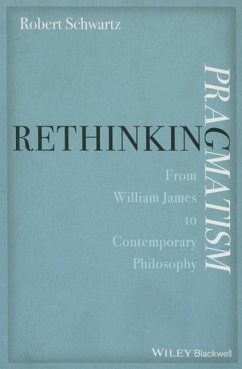Rethinking Pragmatism explores the work of the American Pragmatists, particularly James and Dewey, challenging entrenched readings of their views on truth, instrumentalism, realism, pluralism, and religious beliefs. Schwartz takes James's work as the basis for his discussion. His detailed commentary on James's Pragmatism, which Schwartz uses as a scaffold for rethinking pragmatic themes and arguments more generally, looks ahead rather than back. In terms that have significant implications for current philosophical controversies, Rethinking Pragmatism explains why the Pragmatists rejected meanings, fixed reference, and metaphysical necessity, but did not reject theoretical entities. Most significantly, it provides a perspective on the pragmatic theory of truth that shows, for example, why James readily admits that truth is "agreement with reality," and why Dewey praises Tarski's work on truth as a breakthrough in semantic theory. Schwartz also links the Pragmatists' reasons for rejecting nineteenth-century positivism to twentieth-century challenges to logical positivism. The result is a book that coherently unfolds James's work, while demonstrating the contemporary relevance of the American Pragmatists' ideas and arguments to debates about the nature of inquiry, language, and reality.
Hinweis: Dieser Artikel kann nur an eine deutsche Lieferadresse ausgeliefert werden.
Hinweis: Dieser Artikel kann nur an eine deutsche Lieferadresse ausgeliefert werden.








